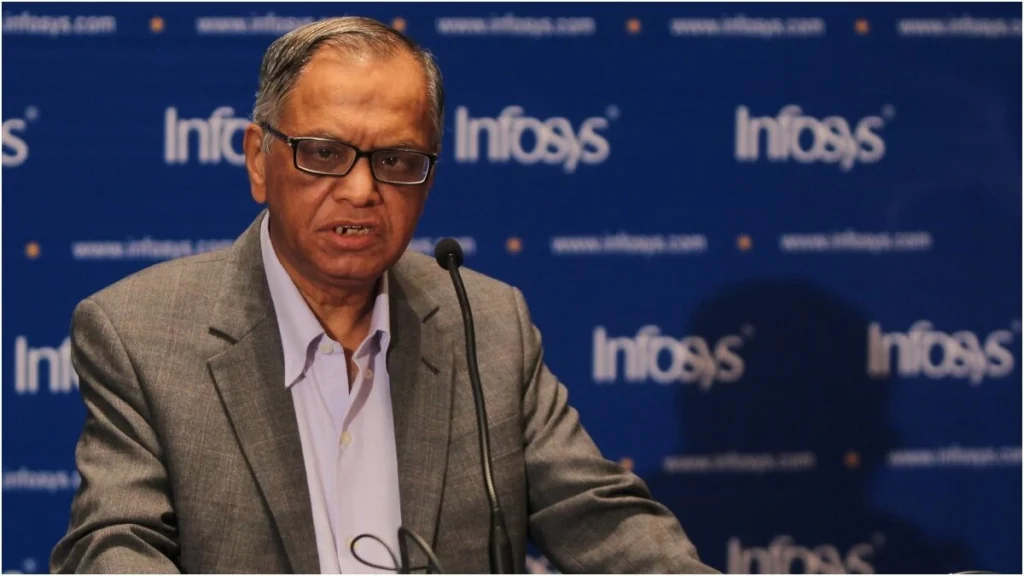Narayana Murthy reiterated his disappointment with the shift to a five-day work week, emphasizing the importance of hard work for India’s growth. He emphasized that hard work is crucial for national progress, pointing to Prime Minister Narendra Modi’s long work hours as a prime example.
Infosys co-founder Narayana Murthy has once again shared his firm stance on work ethics, expressing his disappointment with the shift to a five-day work week. Speaking at the CNBC Global Leadership Summit, Murthy stated that he does not believe in the concept of work-life balance, emphasizing the need for hard work and dedication, particularly for India’s development.
Table of Contents
Murthy’s Disappointment with the Shift to a 5-Day Work Week
Narayana Murthy reiterated his disappointment with the move from a six-day to a five-day work week, which took place in 1986. He expressed that the shift weakened the work culture, suggesting that a longer work week is essential for both personal success and the progress of the nation. “Frankly, I was very disappointed when we shifted from a six-day work week to a five-day work week,” Murthy said. He added that the only way to show appreciation for India’s progress is through diligent work, echoing the sentiments of other business leaders like KV Kamath, who have stressed the importance of focusing on national challenges over work-life balance.

No Substitute for Hard Work in India
Murthy’s views reflect his deep belief that hard work is indispensable for both personal and national development. He drew attention to Indian Prime Minister Narendra Modi’s 100-hour work week as an example of dedication. “In India, there is no alternative to hard work,” Murthy remarked. He highlighted that even smart individuals must put in long hours to succeed, sharing his own experience of working 14-hour days and committing six and a half days each week to his professional responsibilities.
Commitment to Long Hours and Professional Growth
Murthy proudly discussed his work ethic, which included arriving at the office by 6:30 AM and working until after 8:30 PM. He argued that such dedication is vital for India to remain competitive on the global stage. According to Murthy, India’s development hinges on the sacrifices and effort made by its workforce, rather than seeking comfort or relaxation. His commitment to hard work, which he continues to advocate for, has been a defining characteristic of his career.

Debate on Work-Life Balance and Mental Health
Murthy’s comments have sparked debate, particularly regarding the impact of long work hours on mental health. Critics argue that such expectations may not be sustainable or healthy for employees, especially in large corporations. While Murthy’s views highlight his belief in hard work as a path to success, others raise concerns about the importance of work-life balance and employee well-being.
Hard Work as the Key to Success
Narayana Murthy’s unwavering stance on hard work reflects his belief that personal and national success is achieved through dedication and sacrifice. His comments underscore the need for a disciplined, committed workforce to drive India’s development and global competitiveness. However, as the debate on work-life balance continues, Murthy’s call for hard work challenges the growing emphasis on personal time and relaxation.




